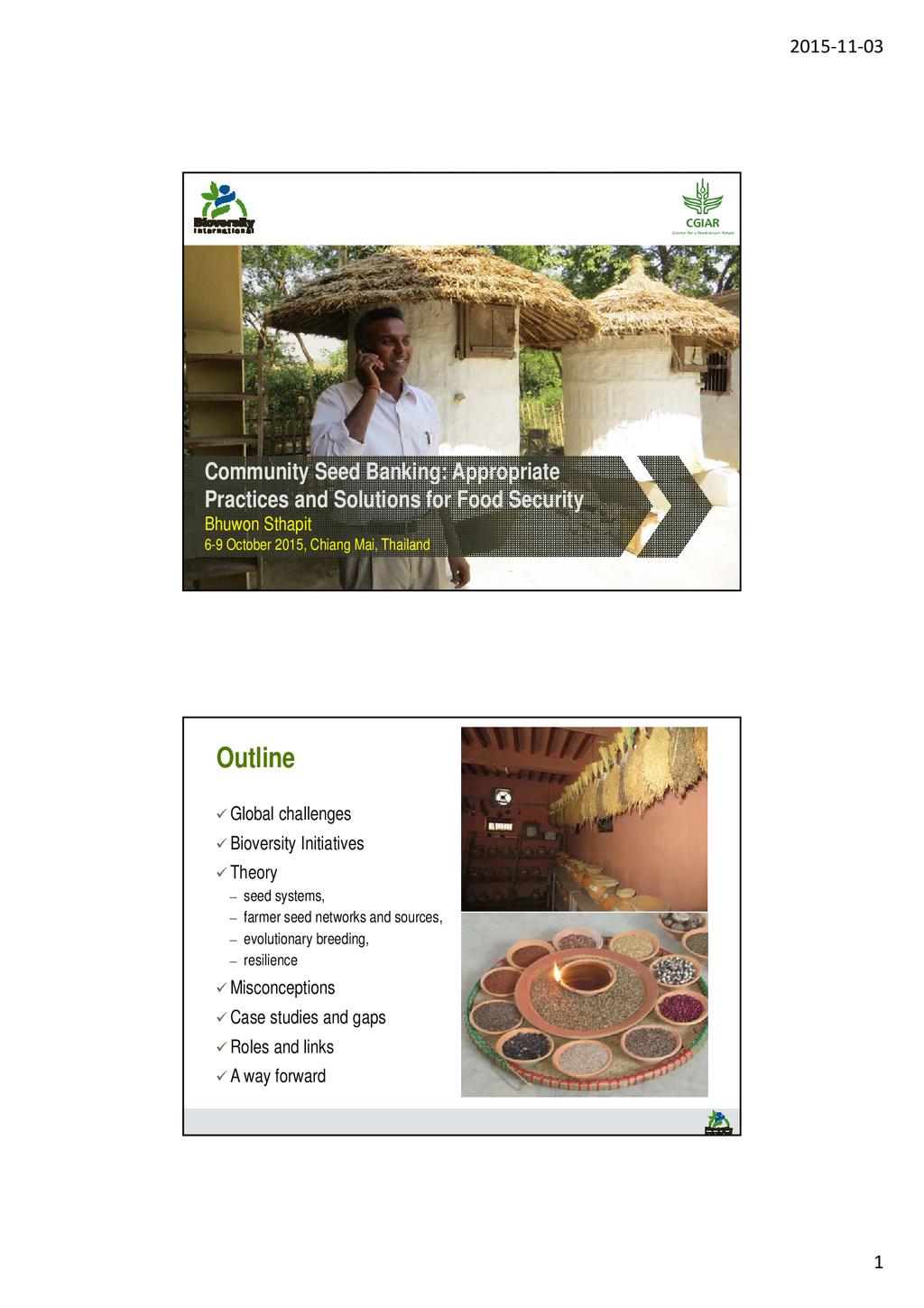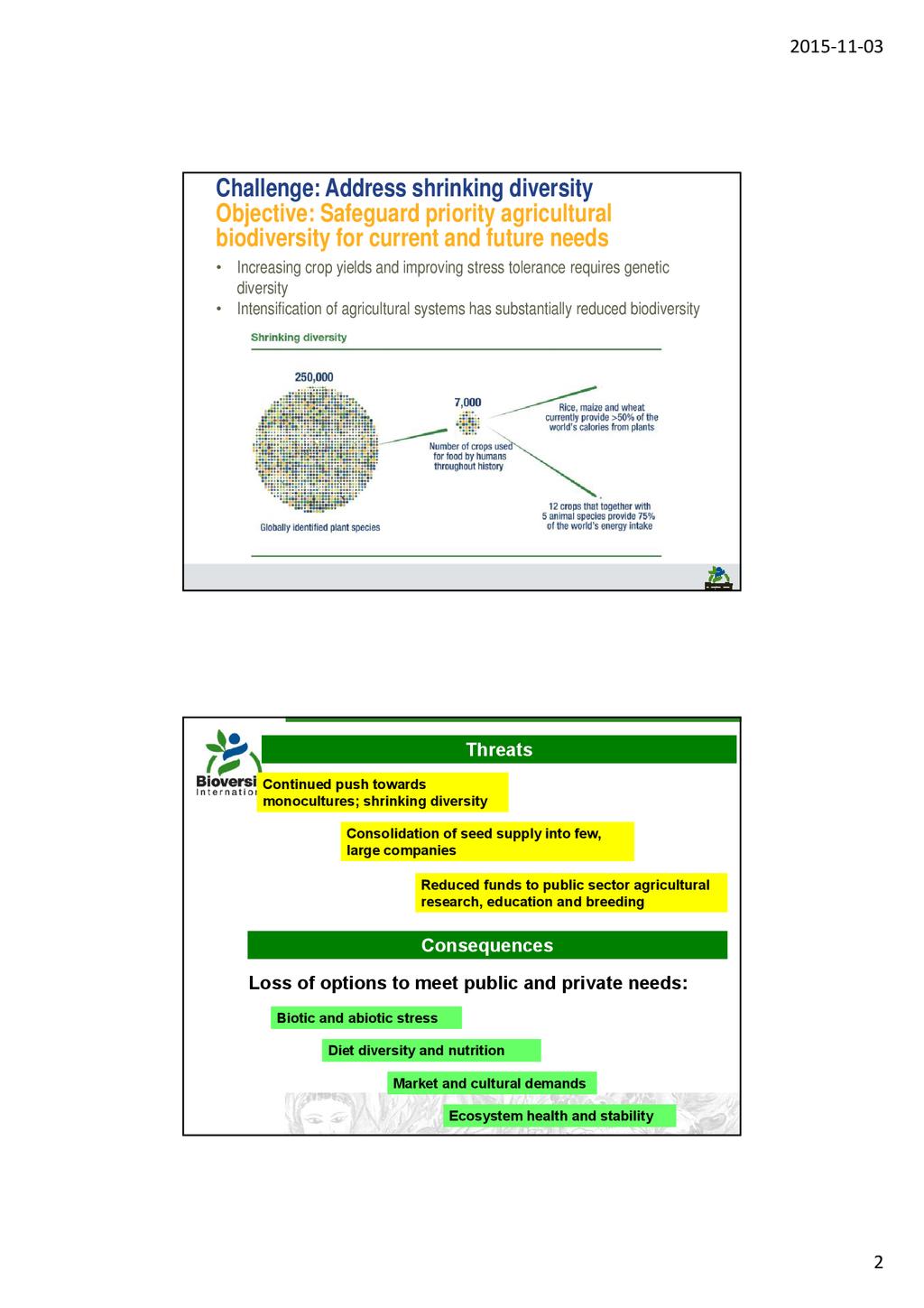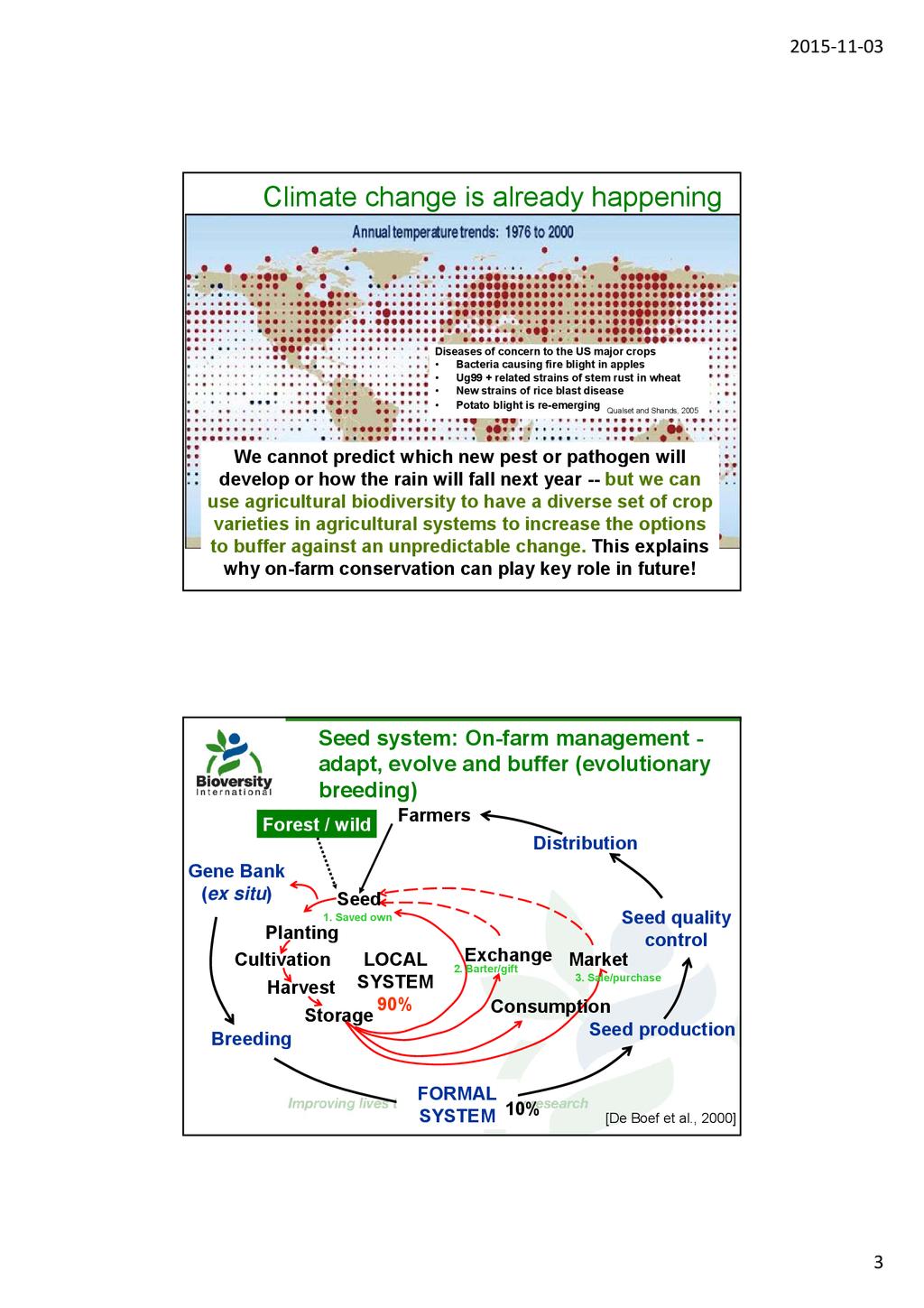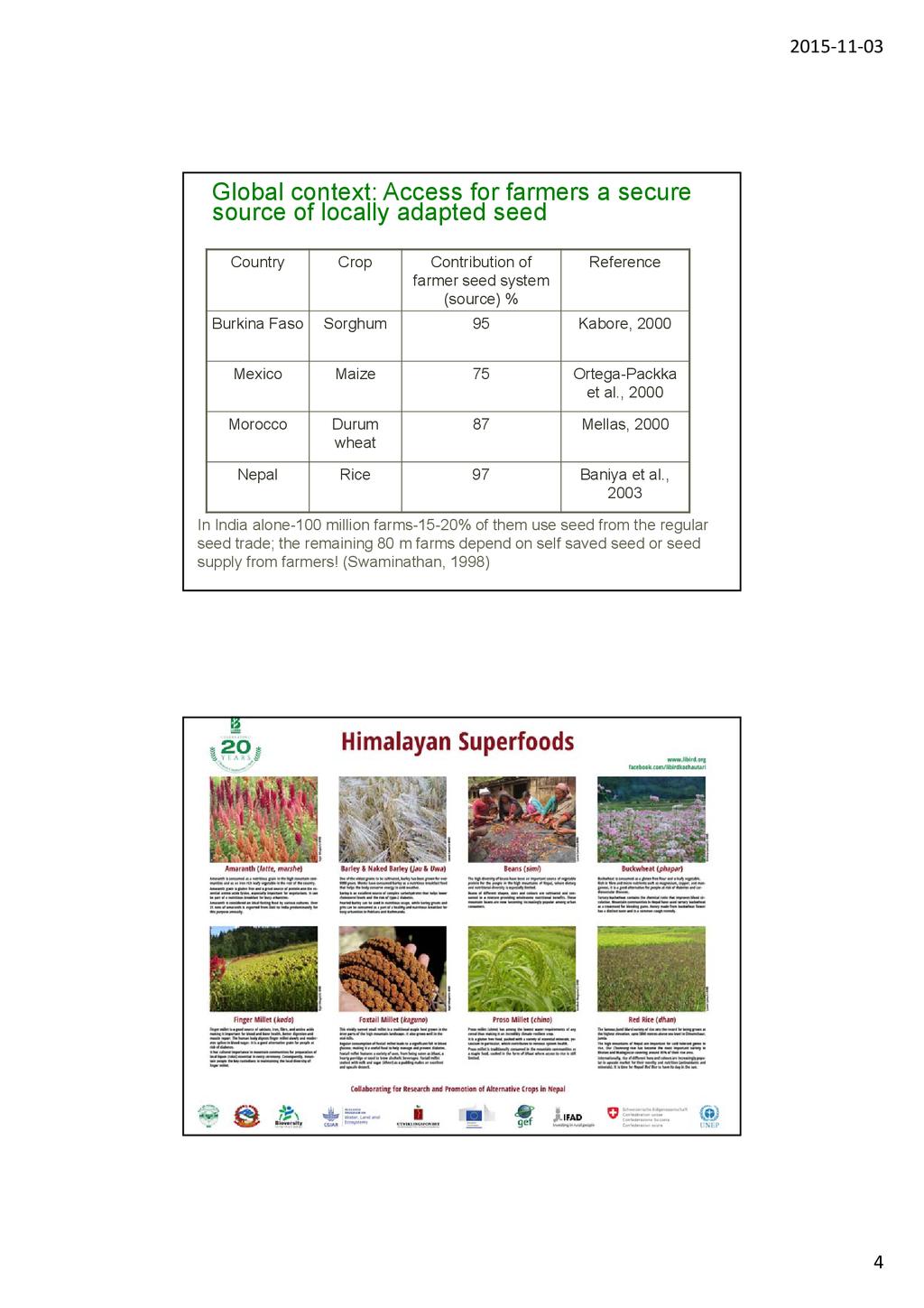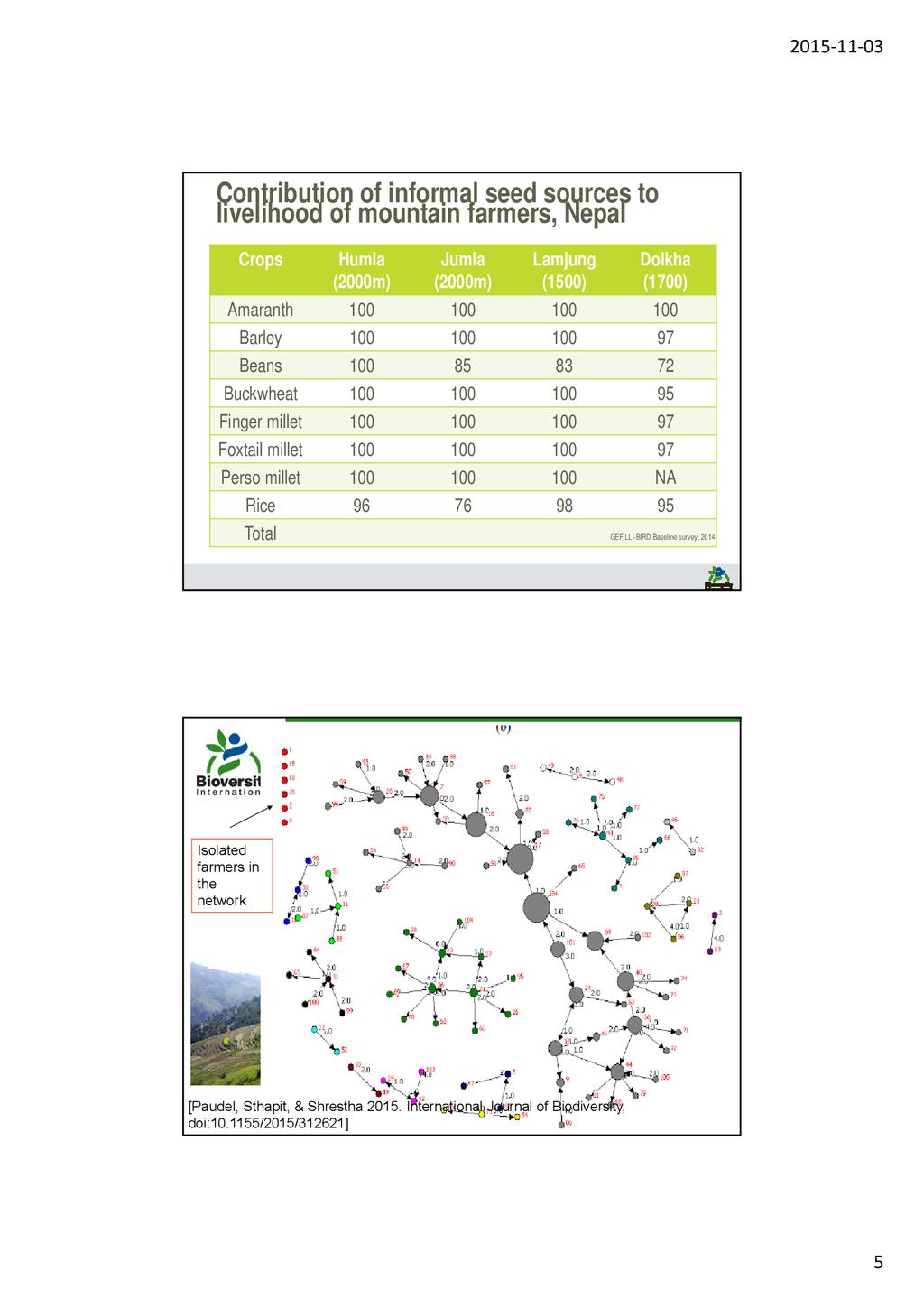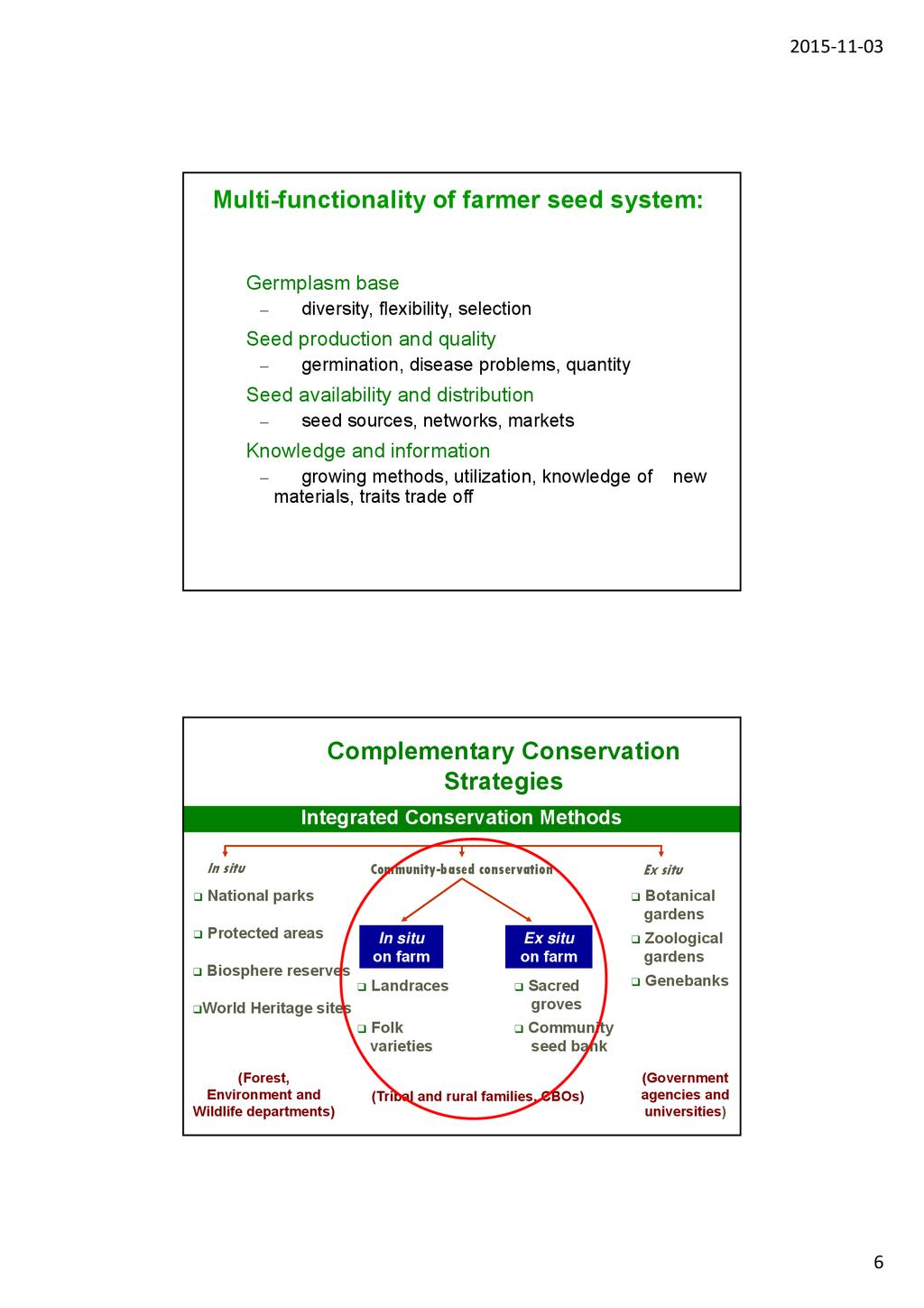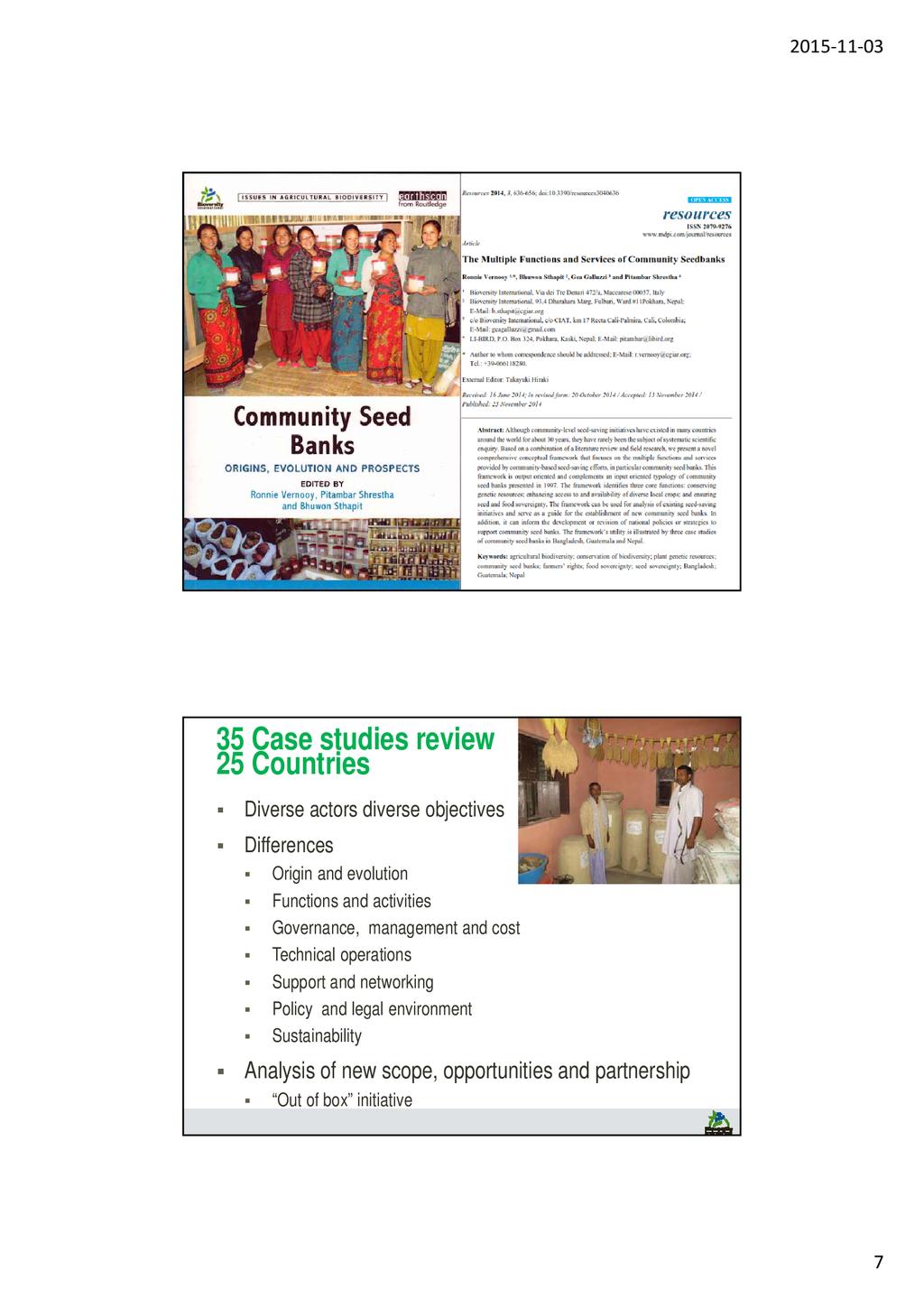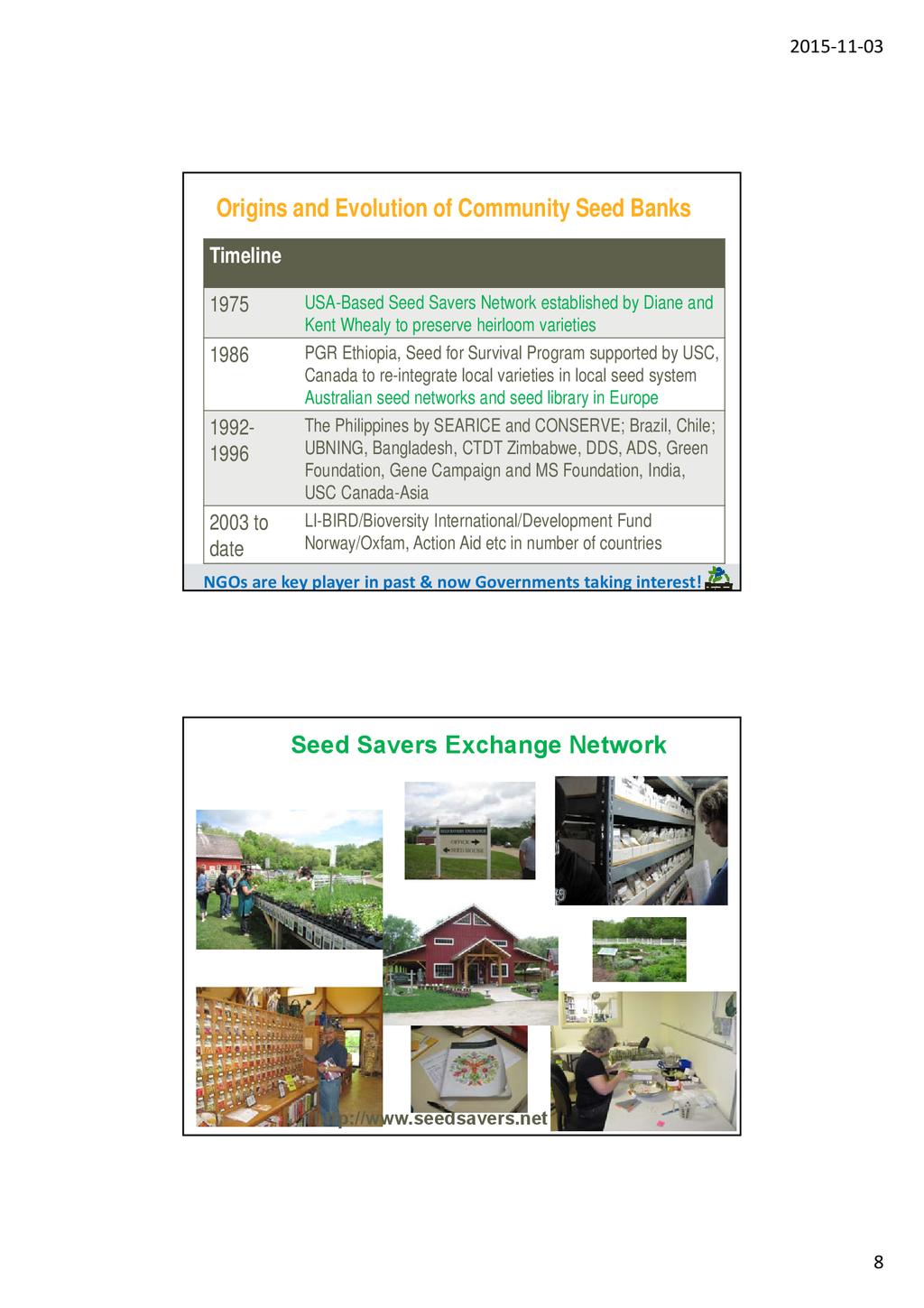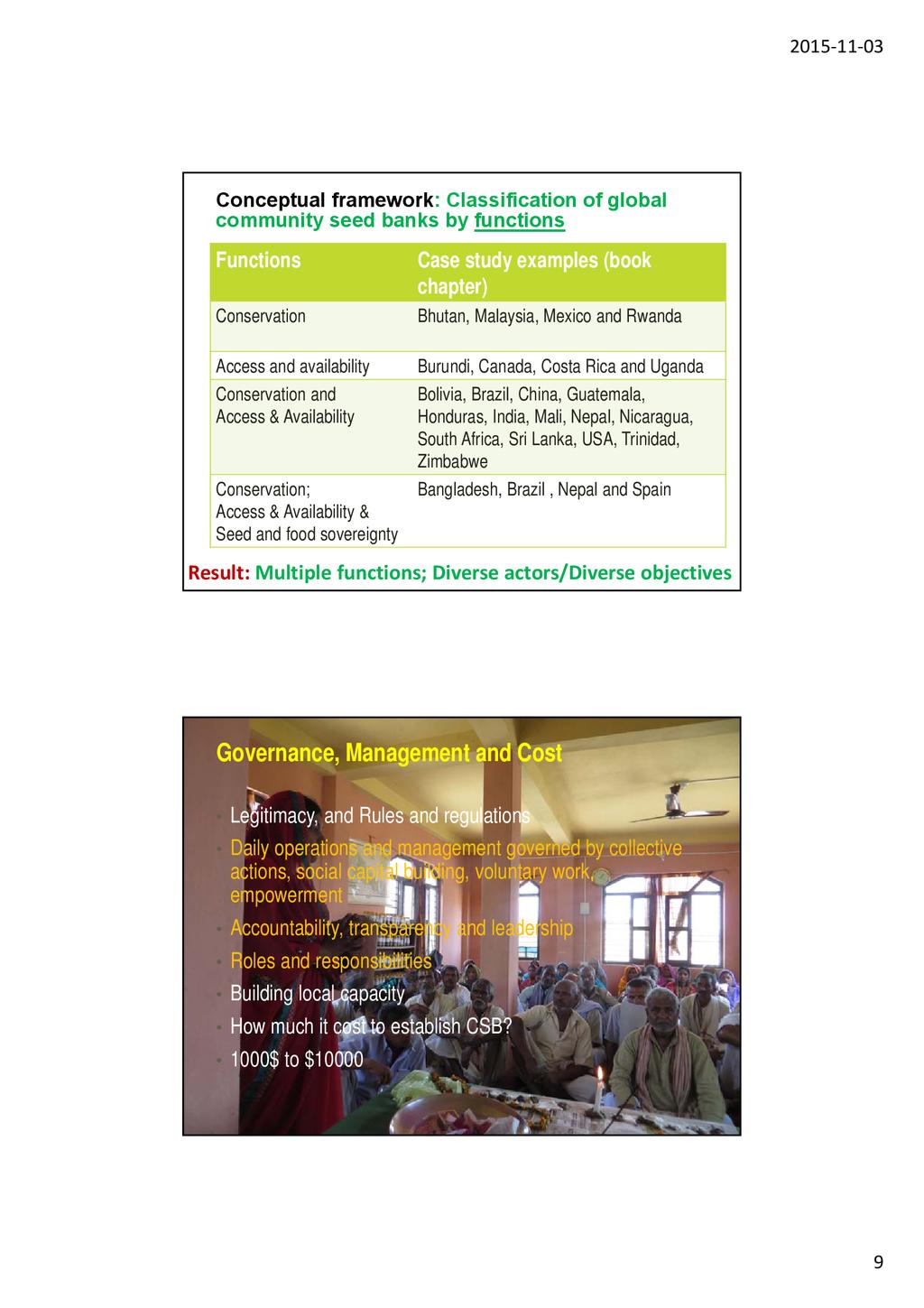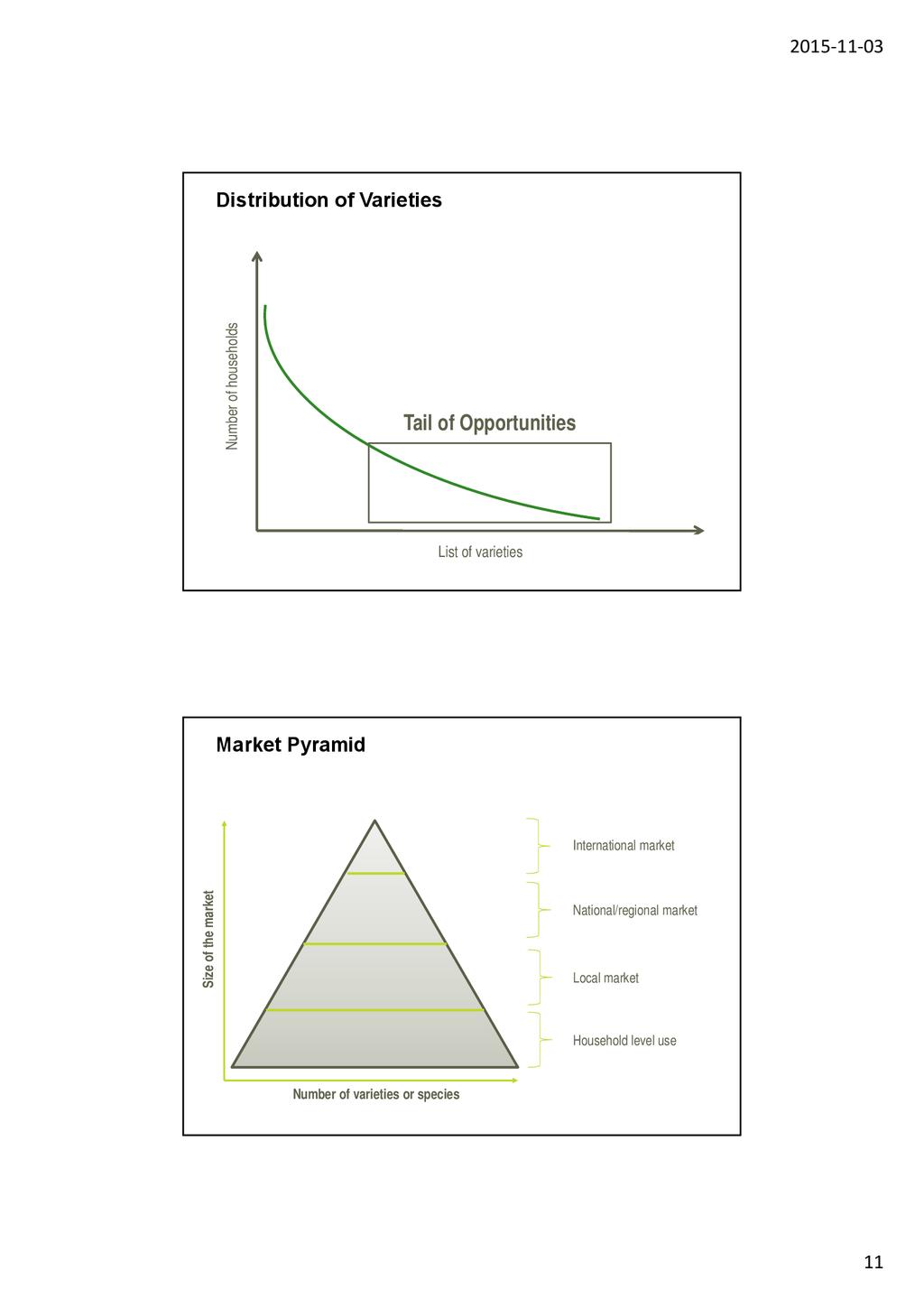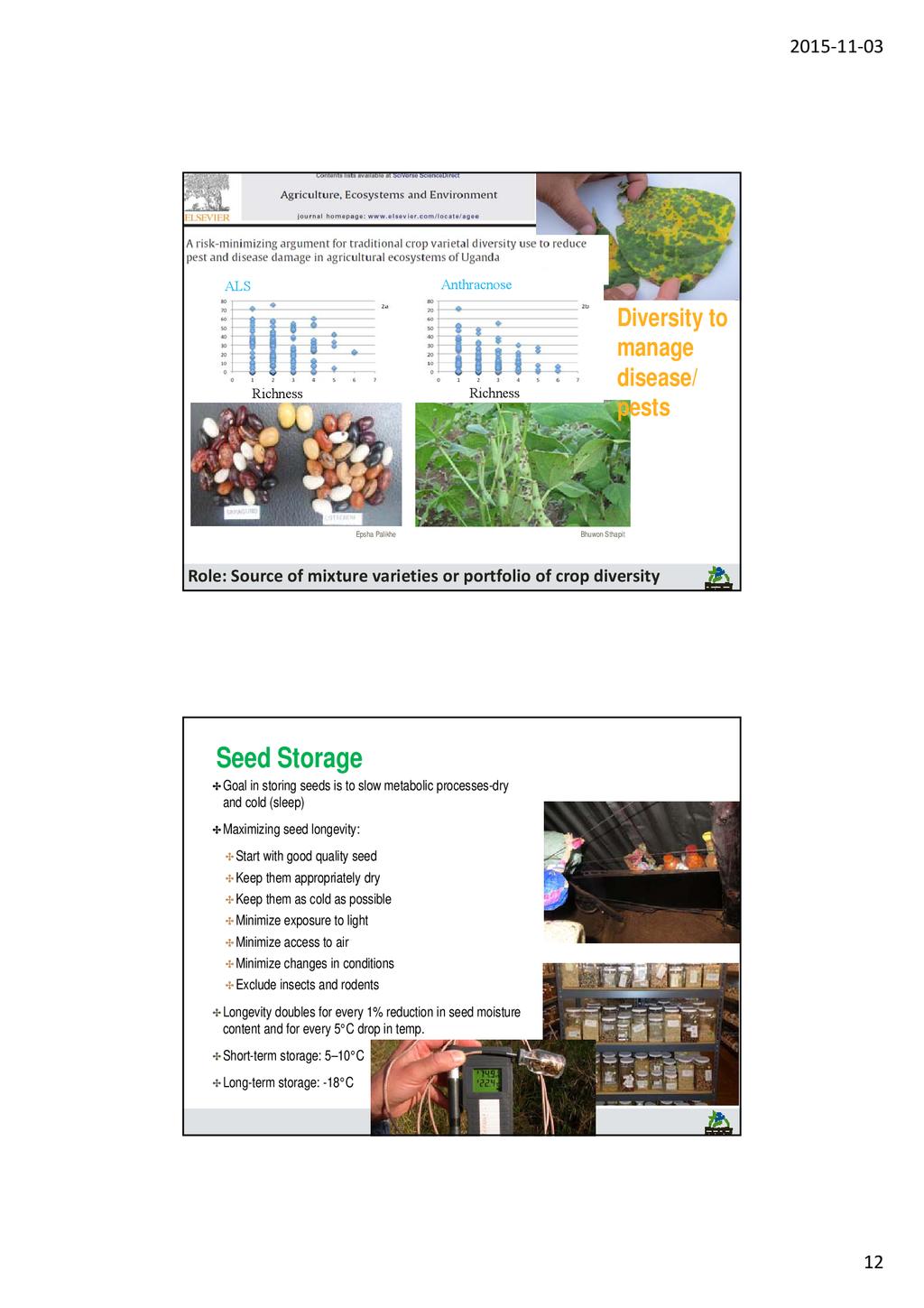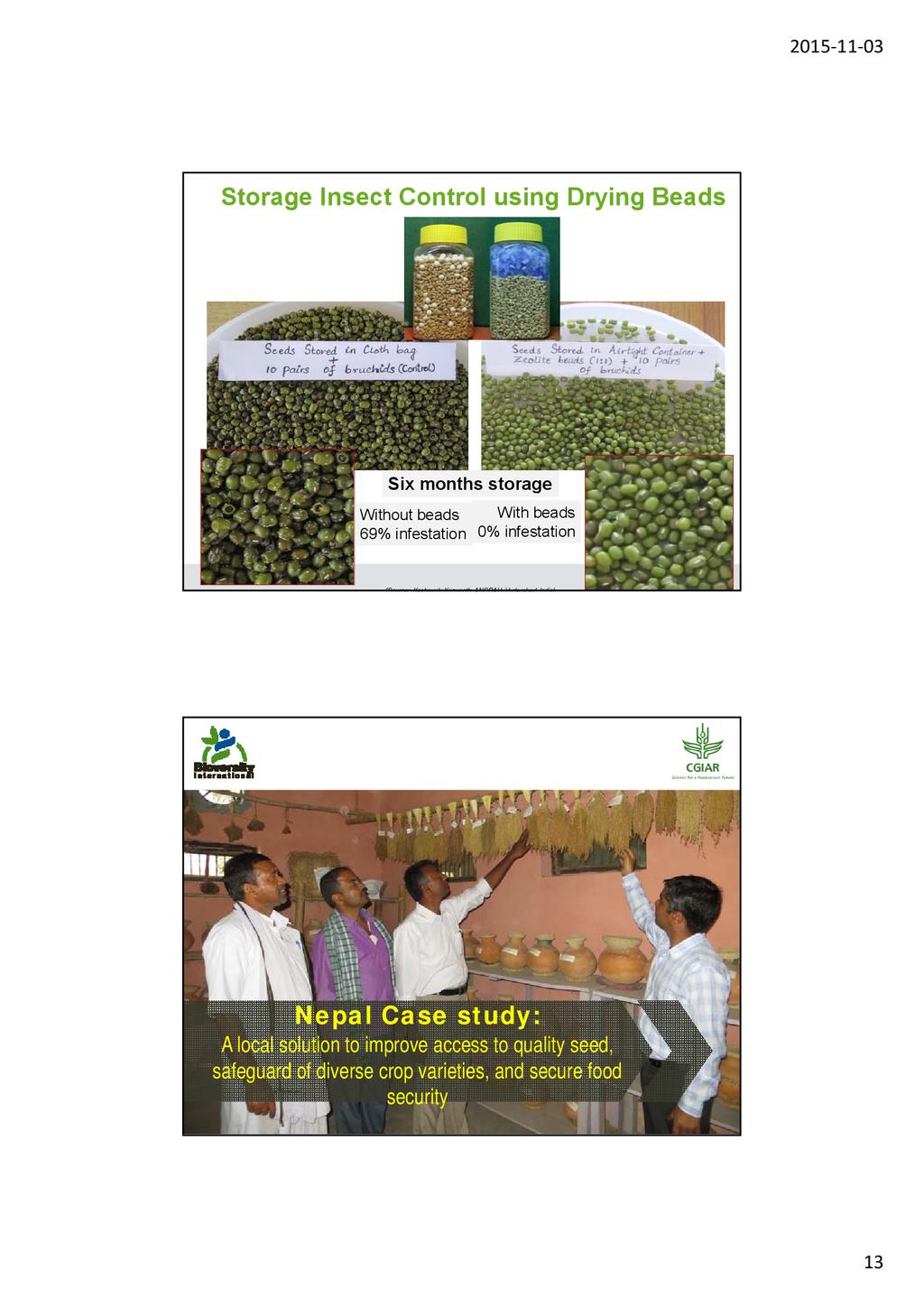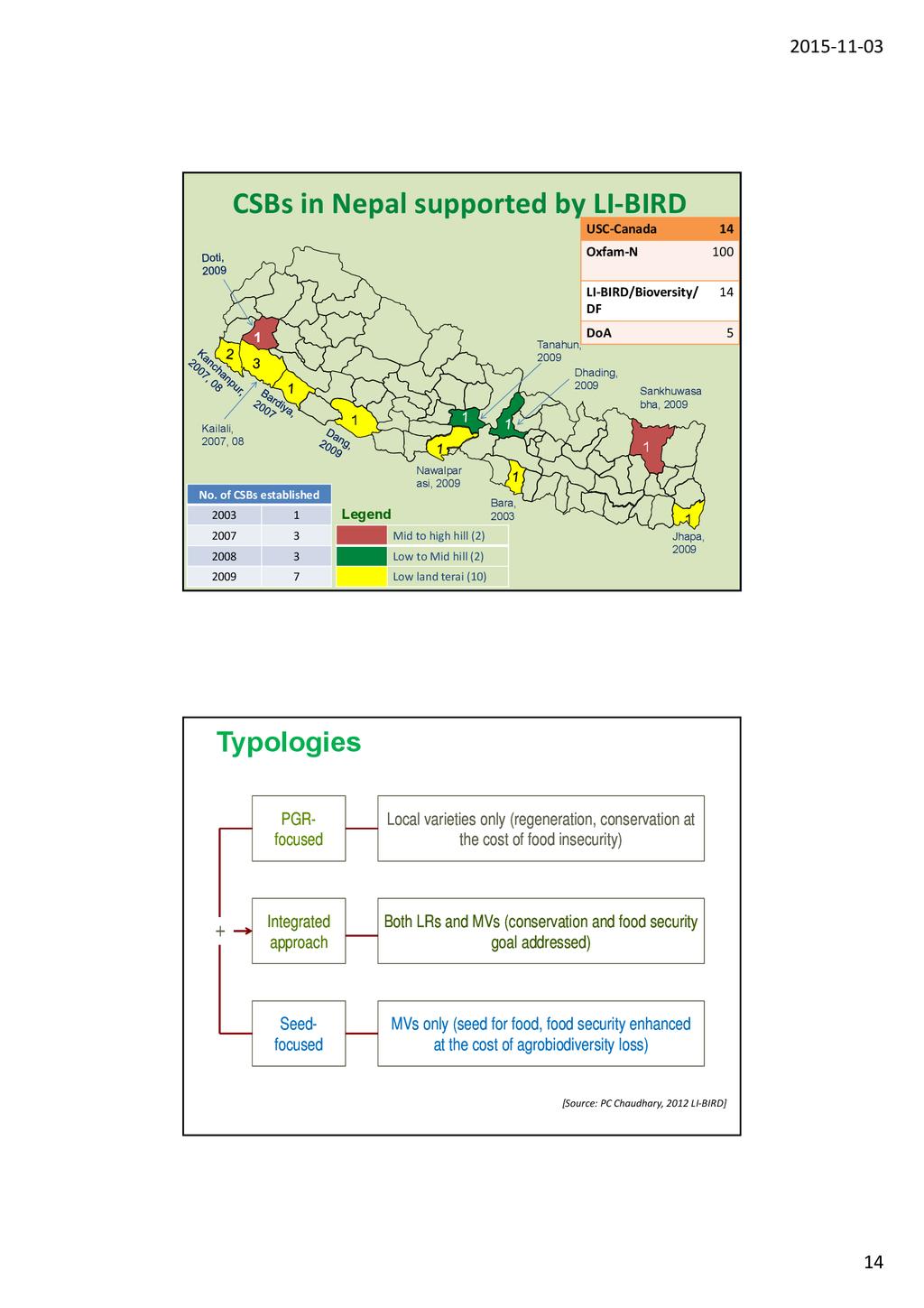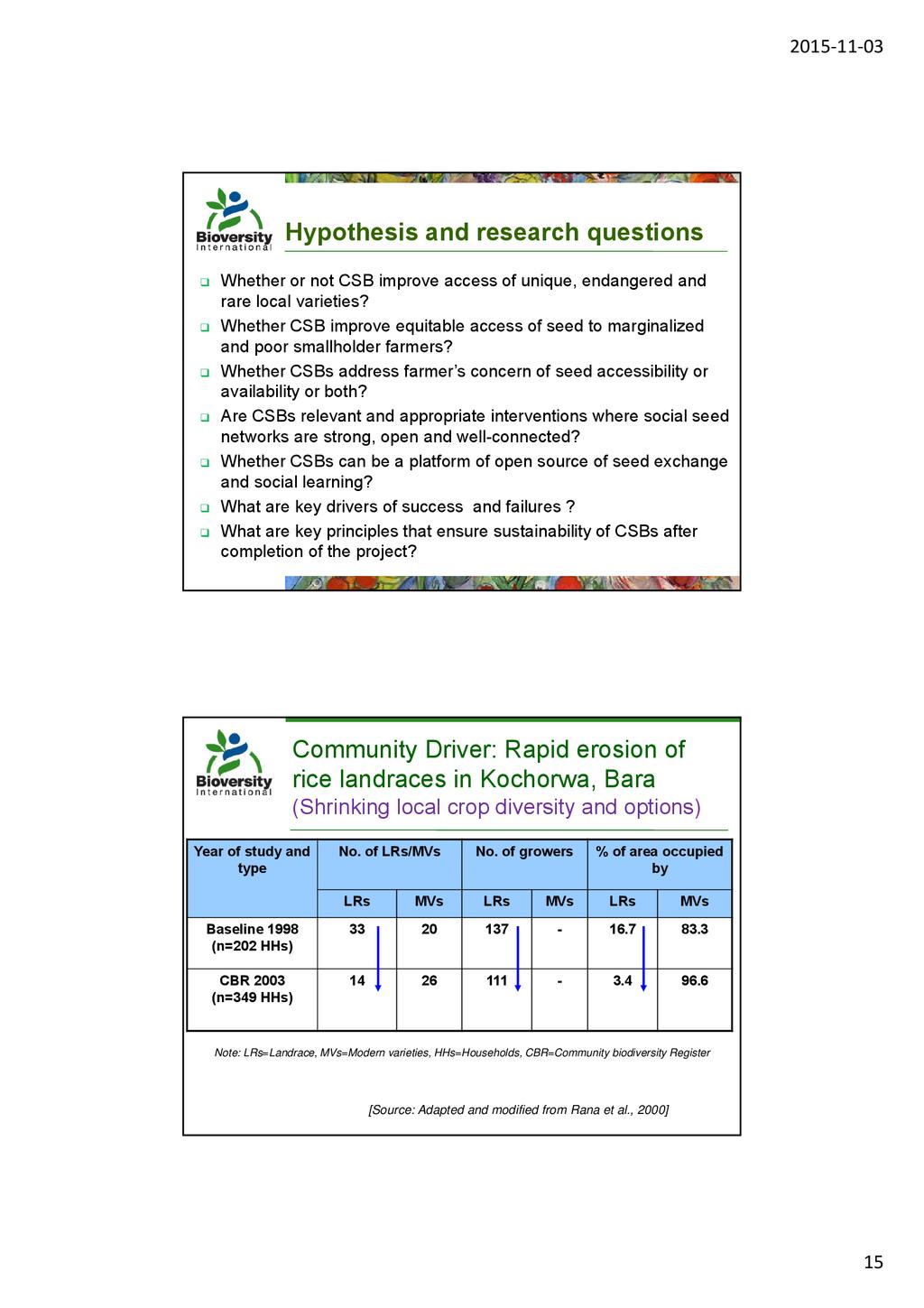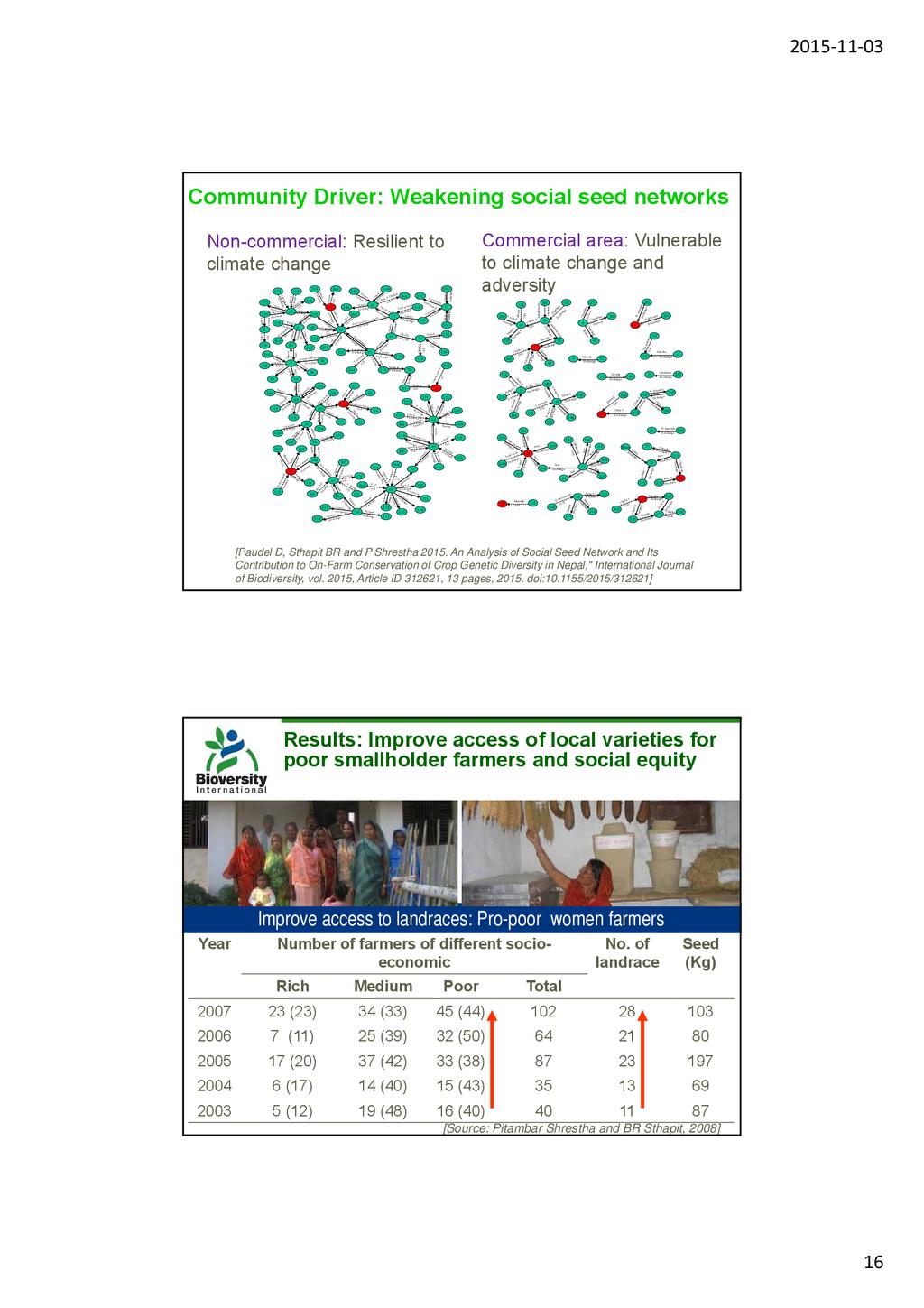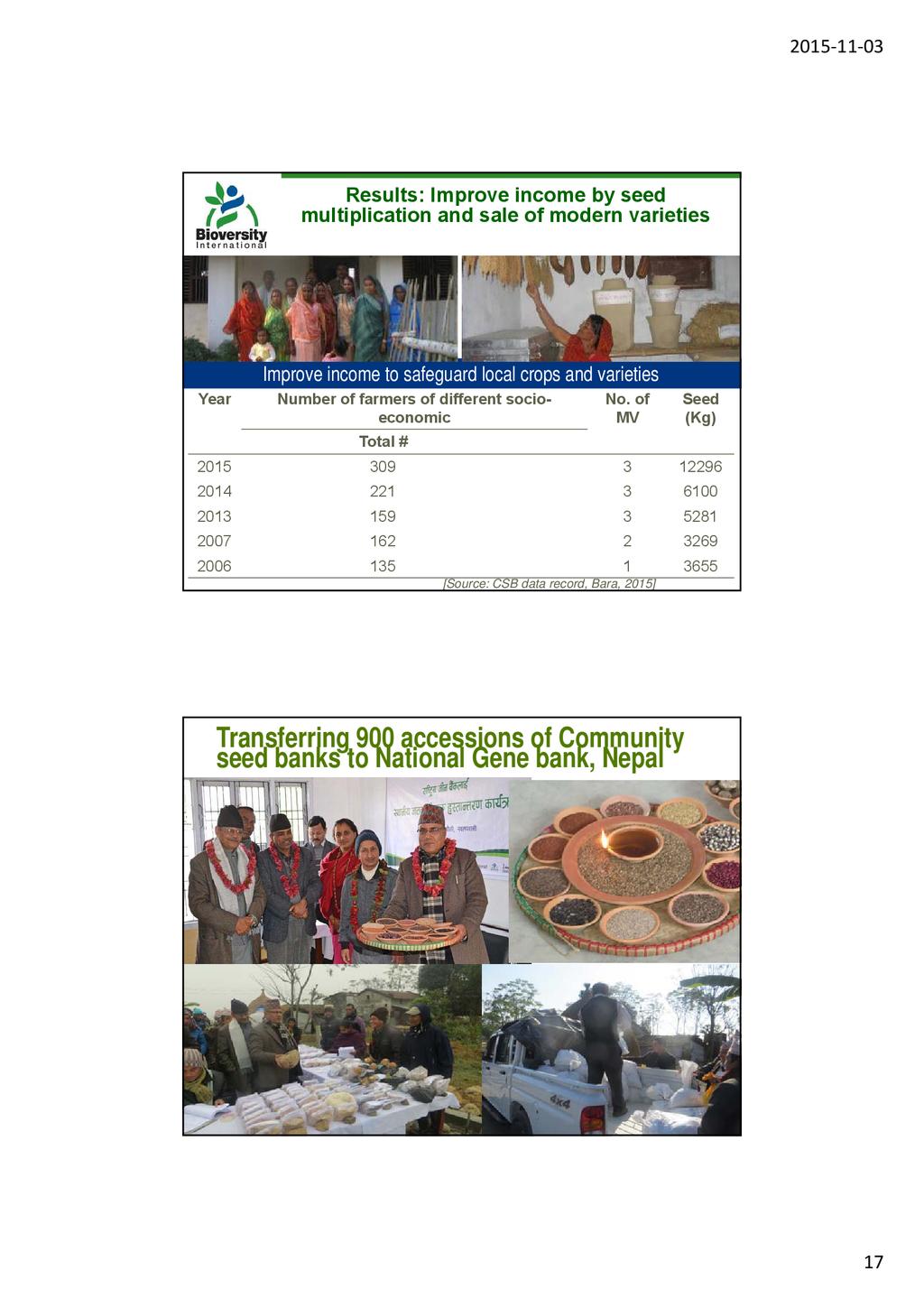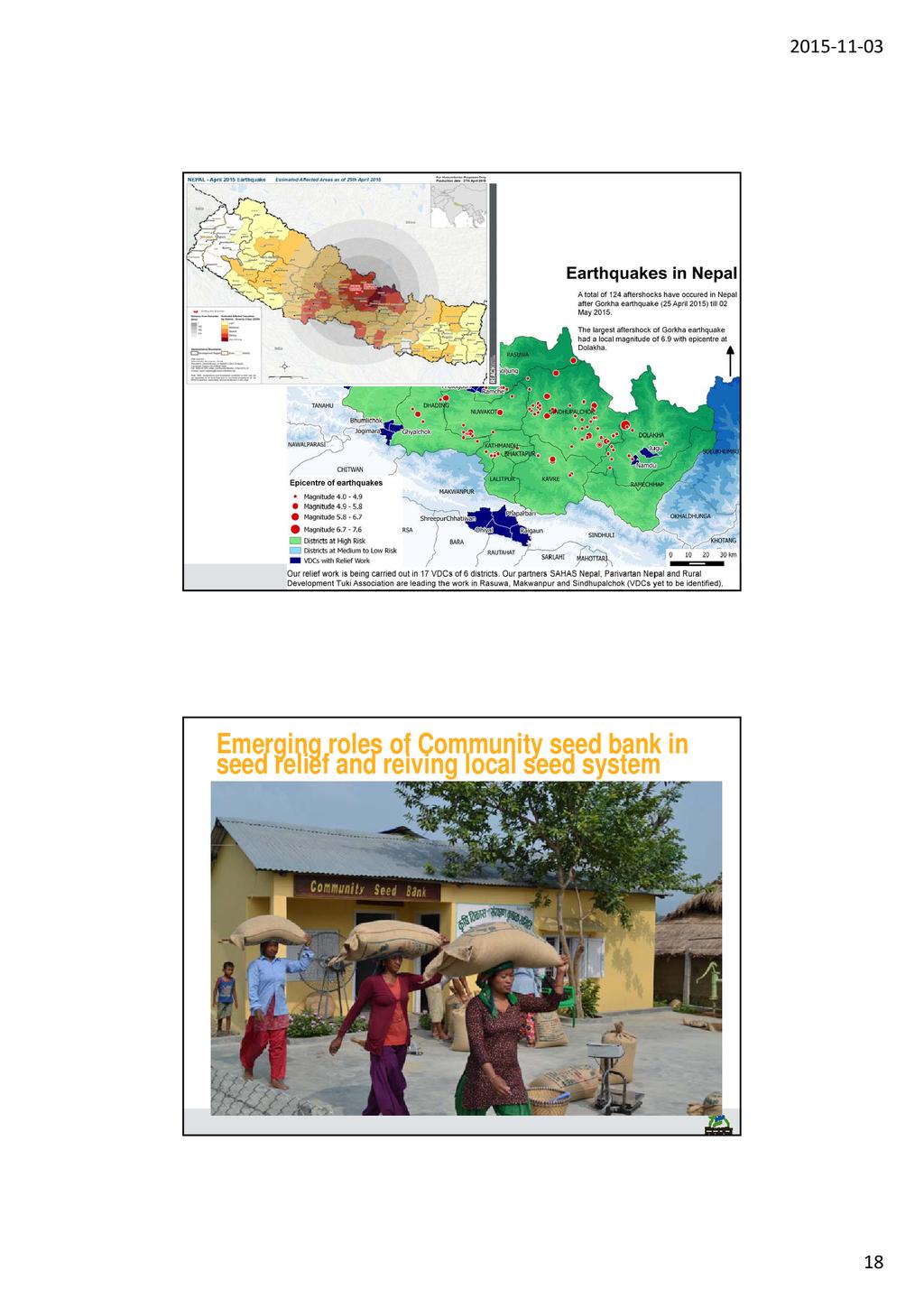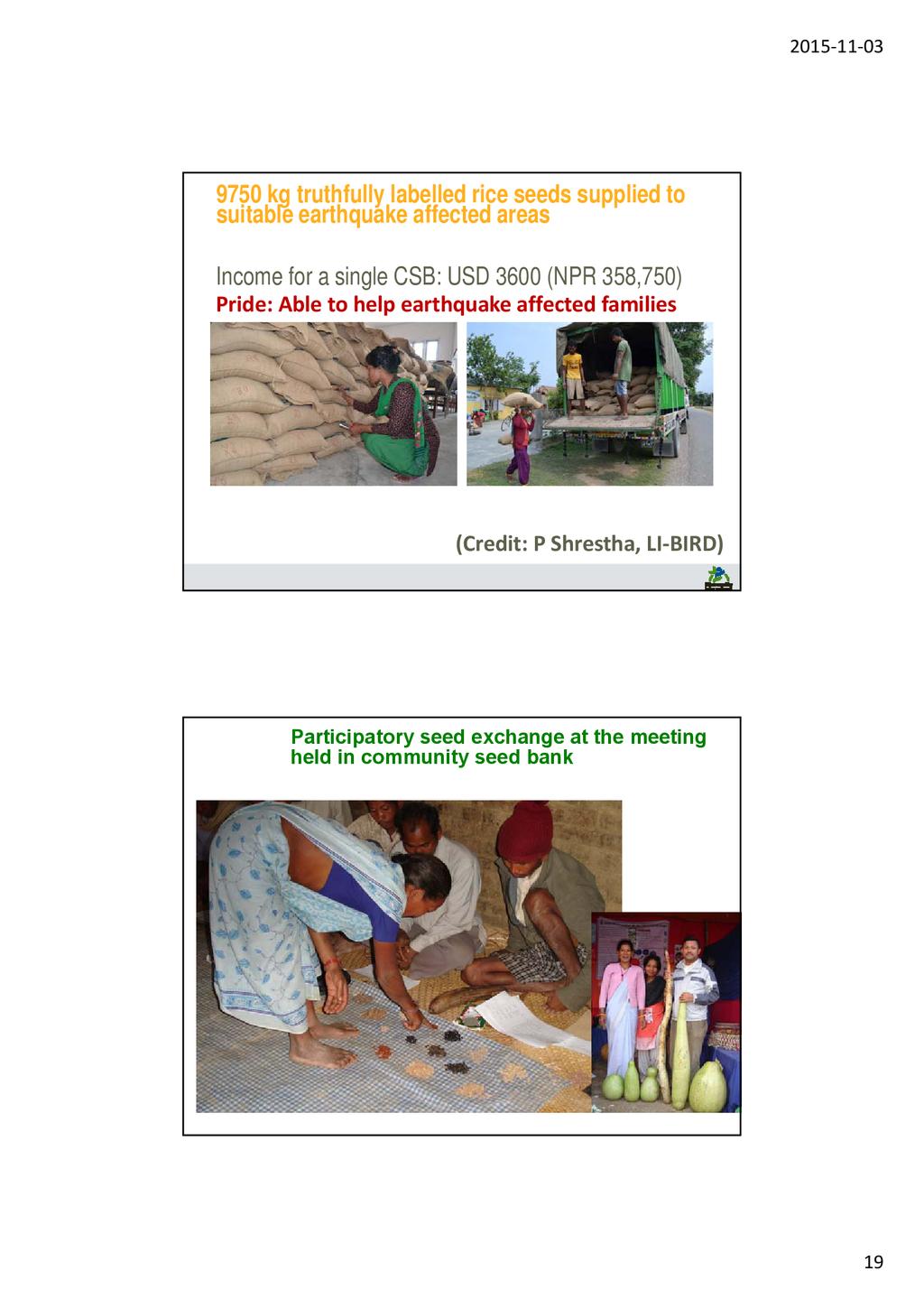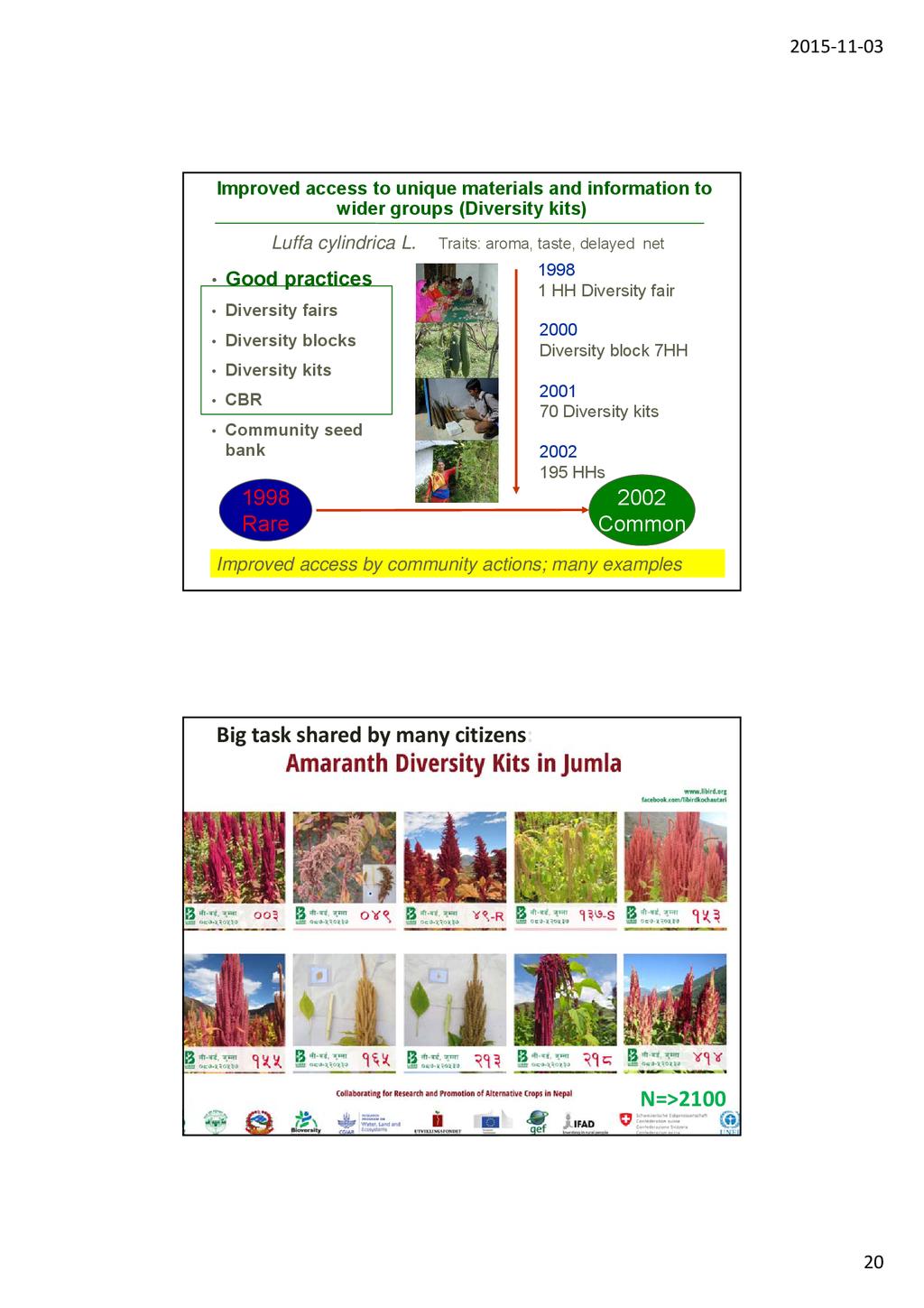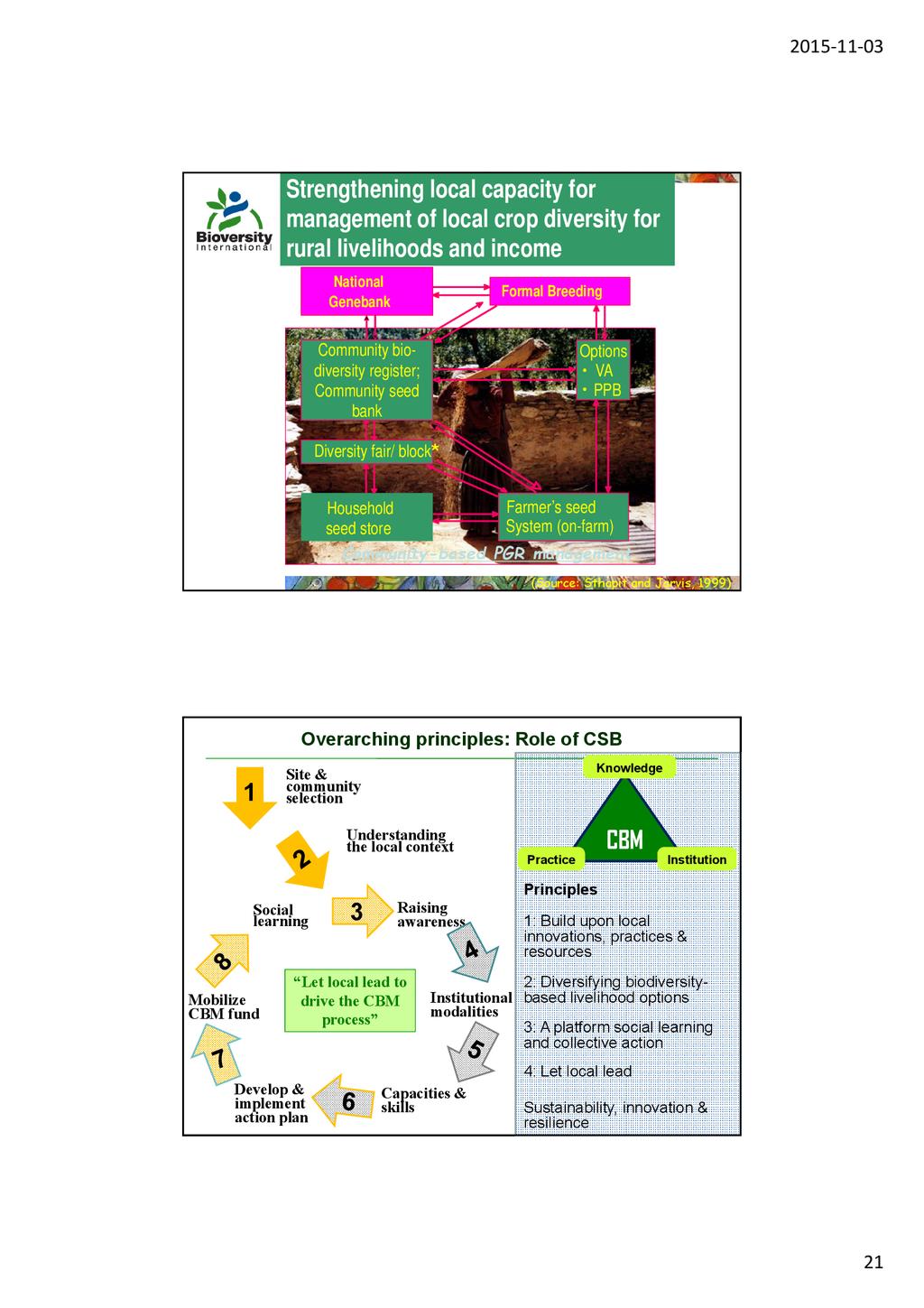主讲人: Bhuwon Sthapit
活动: Echo Asia Conference Resources (2015-10-06)
Speaker Bio: Bhuwon Sthapit is the Senior Scientist at Bioversity International. He earned a Ph.D. in Plant Breeding from the University of Wales, UK, and is a pioneer in participatory crop improvement methods. He has over 30 years of experience in implementing biodiversity related projects in Brazil, China, India, Indonesia, Malaysia, Nepal, South Africa, Sri Lanka, Thailand, Vanuatu, and Vietnam. His major research themes include: participatory methods to assess and use agricultural biodiversity, participatory crop improvement, in situ and on-farm conservation, home gardens, community-based biodiversity management, tropical fruits, and community seed banks. Bhuwon is currently coordinating two UNEP GEF Projects on Tropical Fruit Tree Diversity in India, Indonesia, Malaysia, and Thailand, and on GEF Project Integrating Traditional Mountain Crop Genetic Diversity for Food Security and Resilience in Nepal. He is also a founder member of the NGO, Local Initiatives for Biodiversity, Research and Development (LI-BIRD) in Nepal. He has been with Bioversity International since 1997 as in situ conservation specialist and is currently based in the Nepal Of ce as country representative. He has authored/co-authored over 320 publications.
Abstract: The farmer seed system is currently under stress and is surrounded by many misconceptions that are scientifically not evident. Community seed banks have been around for about 30 years but they have not been systematically reviewed to analyze their strengths, weaknesses/gaps, and opportunities. They have been designed and implemented to conserve, restore, revitalize, strengthen, and improve resilient local seed systems in order to address a number of challenges: food insecurity, malnutrition, poverty, and climate change. Bioversity International has reviewed the history, evolution, experiences, successes and failures, challenges, and prospects of 35 community seed banks from 25 countries. They have also studied functions and activities, governance and management, technical operations, support and networking, policy and legal environment, and sustainability of these community seed banks. Of these, a critical analysis of a few successful community seed banks was undertaken to understand main drivers for successful operations and meeting the goals. Key principles and good practices of successful community seed banks are illustrated as scalable practices and solutions.
